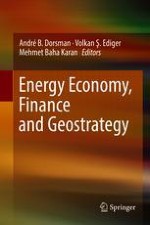2018 | OriginalPaper | Buchkapitel
11. Geostrategic Importance of Energy Trade and Transit and a New Transit Regime Under the International Energy Charter
verfasst von : Volkan Özdemir
Erschienen in: Energy Economy, Finance and Geostrategy
Aktivieren Sie unsere intelligente Suche, um passende Fachinhalte oder Patente zu finden.
Wählen Sie Textabschnitte aus um mit Künstlicher Intelligenz passenden Patente zu finden. powered by
Markieren Sie Textabschnitte, um KI-gestützt weitere passende Inhalte zu finden. powered by
